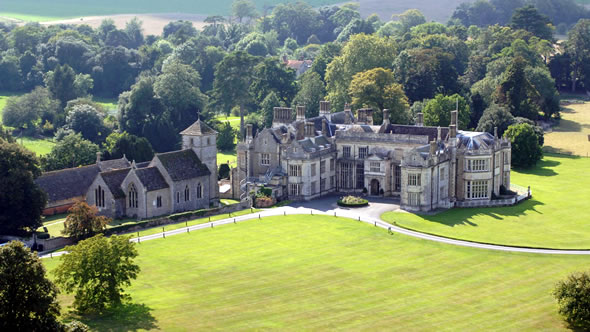Wilton Park – ESI presenting proposals for rule of law reforms at high level event on "Security, the Western Balkans and the UK"

ESI's Gerald Knaus was invited to speak at a fireside chat together with Tim Judah from the Economist, at an event on "Security, the Western Balkans and the UK: working together to address shared challenges" in Wilton Park.
He presented ESI proposals for EU-supported rule of law reforms to senior prosecutors and heads of anti-corruption units of Balkan countries and UK diplomats. The concrete idea: the Balkans should embrace the serious methodology of the EU 2014 anti-corruption report and launch this as a regional project in 2018. In our 2015 discussion paper "Measuring corruption – The case for deep analysis and a simple proposal" we wrote:
"In February 2014, the European Commission published "Special Eurobarometer 397 – Corruption" covering all 28 EU member states. At the same time it also released a survey on corruption geared towards the EU's business world, "Flash Eurobarometer 374 – Business' attitudes towards corruption in the EU". These surveys became the key input into the 2014 "EU Anti-Corruption Report". Preparation for this report had already started in 2011. Developing a credible methodology for the first EU Anti-Corruption Report was a serious and costly effort. It involved consultations with leading anti-corruption experts from across Europe. It involved polling some 28,000 individuals and 8,000 companies, 1,000 interviews with individuals and 300 with companies in each EU country. The Commission's investment in developing a sound methodology has been made: these are sunk costs. It would be a terrible waste, and a lost opportunity, not to put these tools to use going forward, and to extend the investment to the seven accession countries."
This would be useful for Balkan reform; render anti-corruption debates more concrete; and usefully hold up a mirror to the EU, which introduced this as a regular report in 2014 but then dropped it. No second report was ever published. It would be a great initiative to see the six Western Balkan countries launch this on their own and measure objectively their citizens' and businesses' experiences with corruption.
- ESI discussion paper: Measuring corruption – The case for deep analysis and a simple proposal (2015)
- ESI on economic trends in the Balkans
